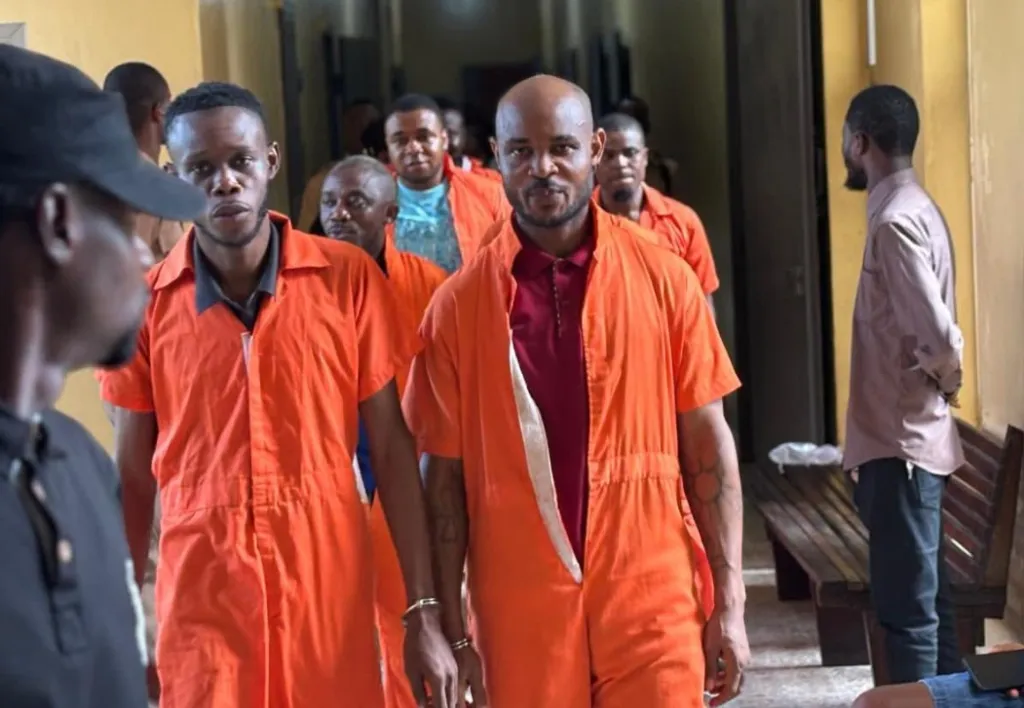The presiding judge of Criminal Court “A” in Monrovia, Liberia, Judge Roosevelt Willie, has denied a motion to suppress evidence in an ongoing arson trial related to the Capitol building. The defendants, accused of the arson, had filed the motion claiming that state security forces had obtained confessions from them through torture and sodomy. Judge Willie’s ruling, delivered on Wednesday, September 24, 2025, followed the presentation of a medical report requested by the defense, which was intended to corroborate their claims of abuse. Despite the medical report confirming some injuries consistent with the defendants’ allegations, Judge Willie deemed it insufficient grounds for suppressing the evidence.
Central to Judge Willie’s decision was the acknowledgment of inherent limitations in the medical report. He cited the report’s author, Dr. Philip Zochonis Ireland, who conceded that while the observed injuries could be consistent with torture, they could also be attributed to other causes. Furthermore, the elapsed time between the alleged incidents and the medical examination, coupled with the limited diagnostic capabilities within the current setting, introduced further constraints on the report’s conclusiveness. Judge Willie underscored that Dr. Ireland himself acknowledged these limitations, weakening the report’s ability to definitively link the injuries to torture. This ambiguity, according to the judge, precluded a definitive determination of torture based solely on the medical evidence presented.
The judge also highlighted the defendants’ retraction of their sodomy claims during the medical examination. Initially, the defendants had included sodomy as part of their torture allegations, requesting that any evidence obtained as a result be suppressed. However, according to the medical report, they subsequently withdrew these specific allegations, thereby negating the need for a medical examination related to sodomy. Judge Willie deemed this retraction significant, implying that the initial claims might have been fabricated. This inconsistency further eroded the credibility of the defendants’ overall torture allegations in the judge’s view.
The court’s initial response to the defendants’ allegations of torture and sodomy was to order an independent medical examination by AMI Expeditionary Healthcare. This examination, conducted by Dr. Ireland, aimed to objectively assess the defendants’ physical condition and determine the veracity of their claims. The subsequent report, while documenting some injuries, contained caveats that ultimately led Judge Willie to question its definitive nature. The combination of the time lapse, limited diagnostic resources, and the defendants’ retraction of their sodomy claims created enough uncertainty for the judge to deny the motion to suppress evidence.
Judge Willie emphasized three key limitations identified within the medical report itself. Firstly, the time elapsed between the alleged torture and the examination could have affected the visibility or nature of any physical findings. Secondly, the defendants’ revocation of consent for specific examinations, particularly genital and anal assessments related to the sodomy allegations, hindered a comprehensive evaluation. Finally, the inherent limitations of available diagnostic modalities within the current setting presented a further obstacle to reaching definitive conclusions. These three factors, as acknowledged by the physician in the report, contributed to the judge’s skepticism regarding the conclusiveness of the medical evidence.
In his ruling, Judge Willie reiterated the defendants’ claims, the prosecution’s objections, and the relevant legal arguments. Ultimately, he concluded that the medical report, while documenting some injuries, did not provide sufficient evidence to definitively prove torture and justify the suppression of evidence. Consequently, he denied the defendants’ motion and ordered the trial to proceed on Friday, September 26, 2025. Furthermore, one of the defendants, whose medical report had confirmed injuries consistent with torture, collapsed in court prior to the ruling but was denied immediate medical attention. This incident, while dramatic, did not alter the judge’s decision regarding the admissibility of evidence. The denial of the motion and the subsequent collapse of the defendant underscore the complex and contentious nature of the trial.


